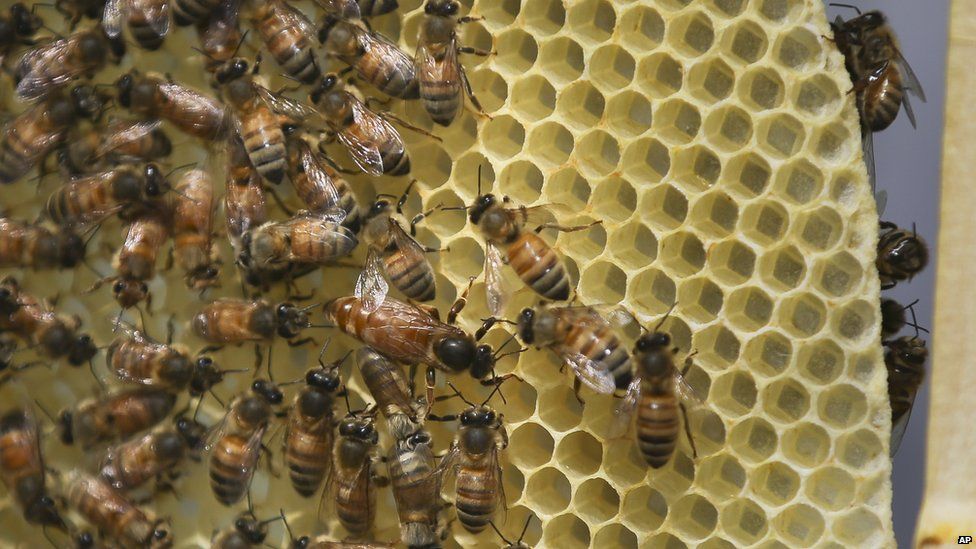Honey bees trained to detect illegal drugs
- Published

Bees, they make a buzzing sound, produce honey, and can sting you if they feel threatened.
But that's not all they can do it seems.
Researchers at the University of Cologne have successfully trained honey bees to tell the difference between heroin and cocaine.
They claim the insects could eventually replace sniffer-dogs at airports. Impressive, but Newsbeat wondered what else bees could do.
Thomas Nowotny is Professor of Informatics at the University Of Sussex, and really knows his bees.
Asked how bees could be trained, he said: "I suspect it's classical conditioning. Where the bees extend their proboscis [tongue] in response to one odour and not in response to another.
"They have been found to do this to all kinds of varieties of odours.
"They train the bees, they give them an odour and some sugar water with it [as a reward].
"Then they learn to use the proboscis to try and lick the sugar water, and later you give just the odour, and they will try to lick.
The good thing about the bees using their tongues is that humans can see it, so they know when the insects are near something they recognise.
"They have the receptors to do explosives and illegal substances, so it doesn't surprise me that they can smell it [drugs]."
Thomas knew of a group in America that had trained bees to extend their tongues when explosives were nearby.
"They actually tried to sell it to the military as a device.
"It was a bit comical actually because the device they came up with they just put three bees in a box, then they had a camera watching them from above,
"You could have just watched the bees really but they made it like this to look more professional!
Thomas said that bees can also perform mental tasks, as shown by a group of researchers he knows in France.
He says they trained bees to recognise a fruit like strawberry. When faced with a choice of between, say, apricot and strawberry, they would act on their training and fly towards the strawberry.
"If they do that with odours, they could also know it about colours or patterns.
"Bees are also well known to be able to [go] home in complex environments.
"They fly out, easily hundreds of metres, then they come back and find their hive. If you think, bumble bees live in the ground in a little hole. They also find that back."
There are other clever insects out there, but Thomas believes bees are up there with the best of them.
"They are high-end, because they have quite a complex life. They're social insects!"
Follow @BBCNewsbeat on Twitter, BBCNewsbeat on Instagram, Radio1Newsbeat on YouTube and you can now follow BBC_Newsbeat on Snapchat